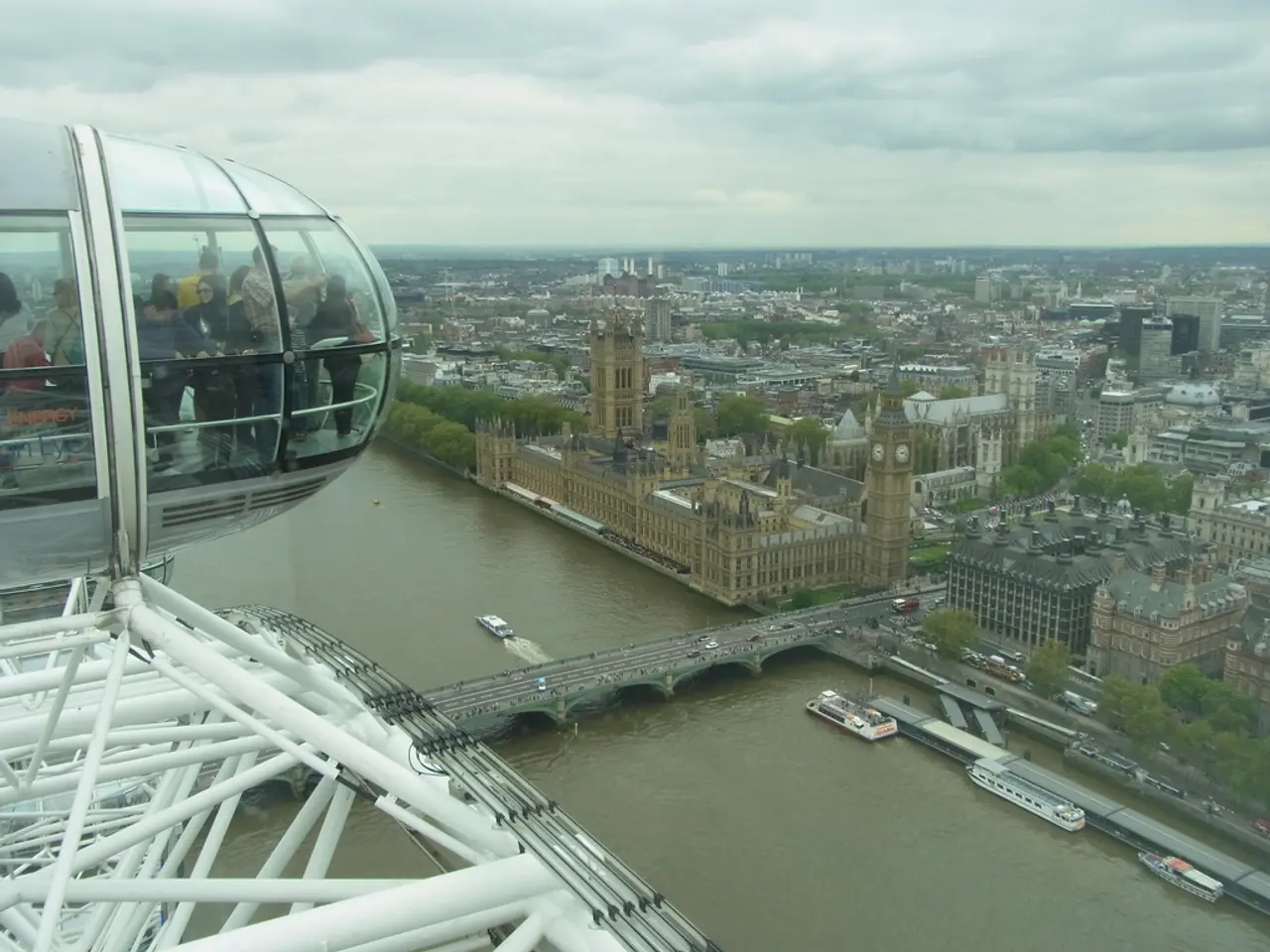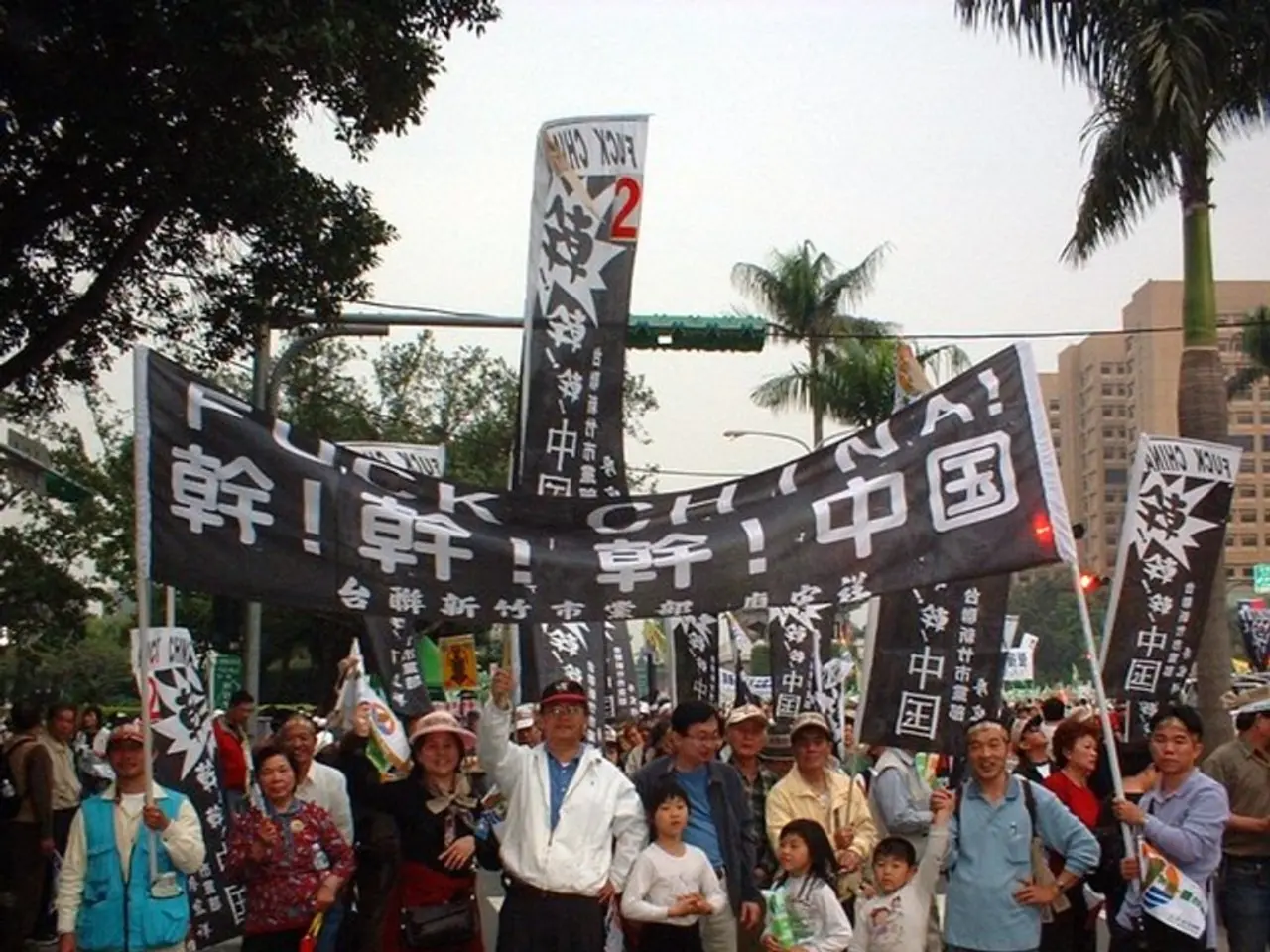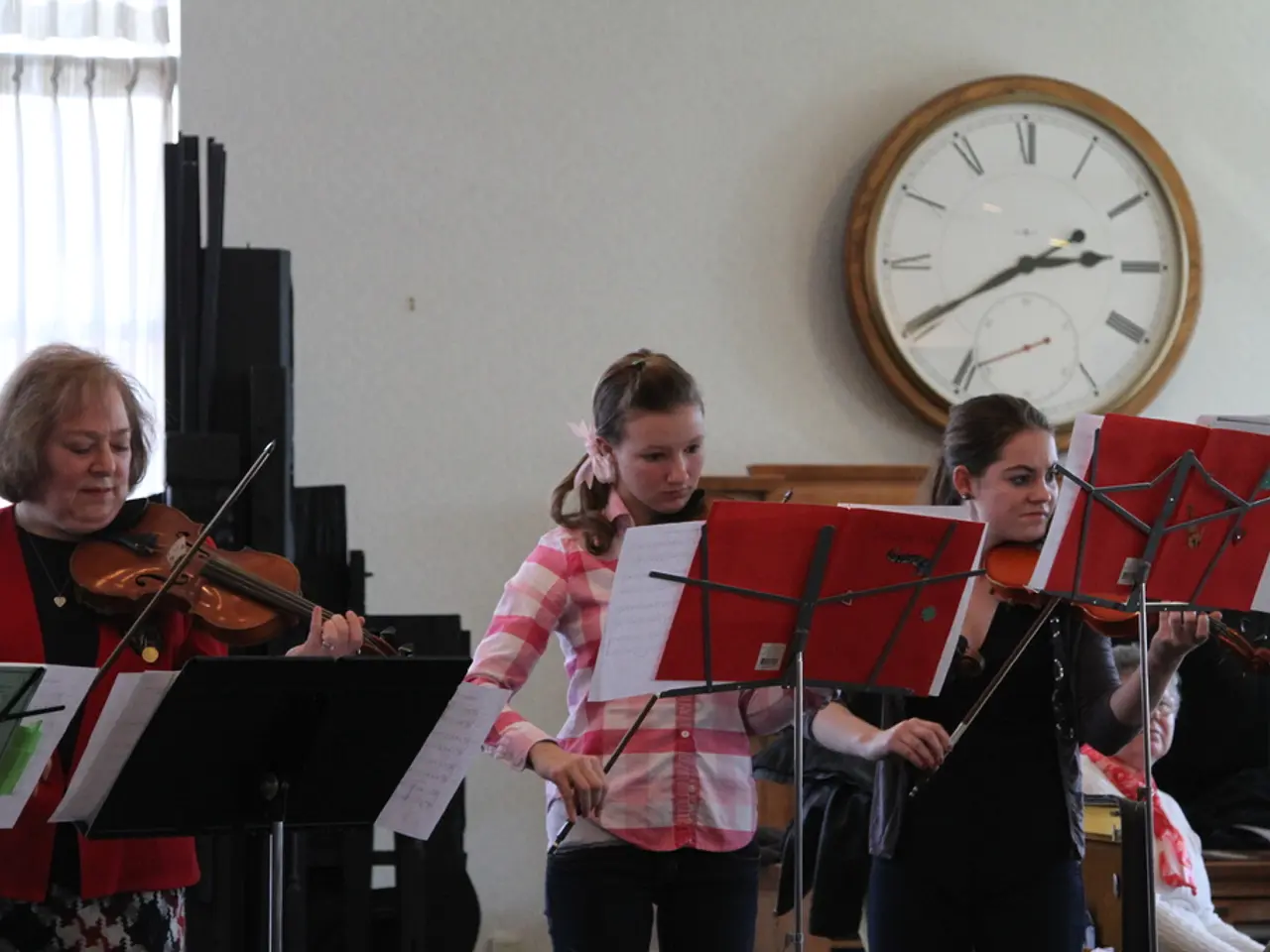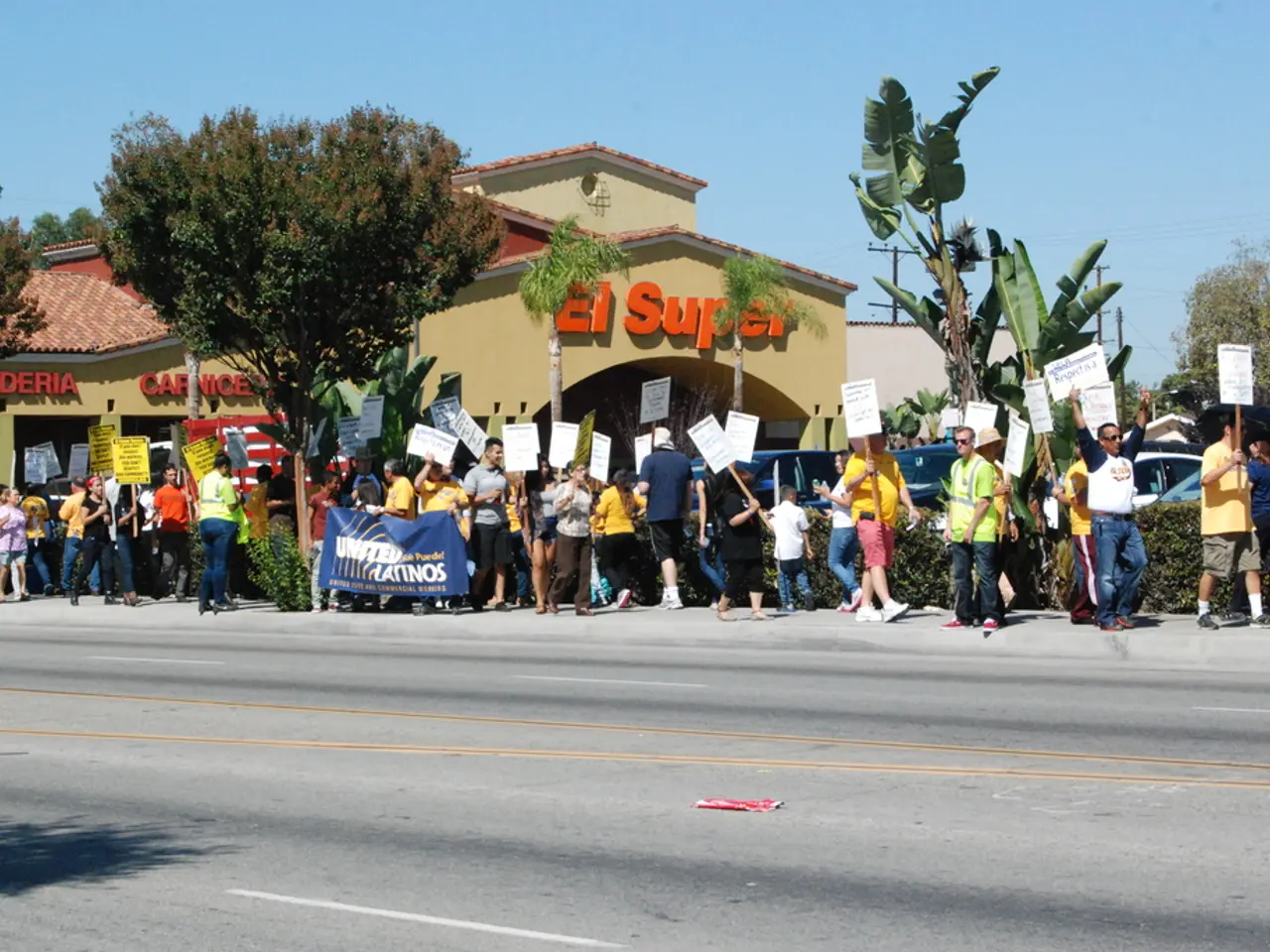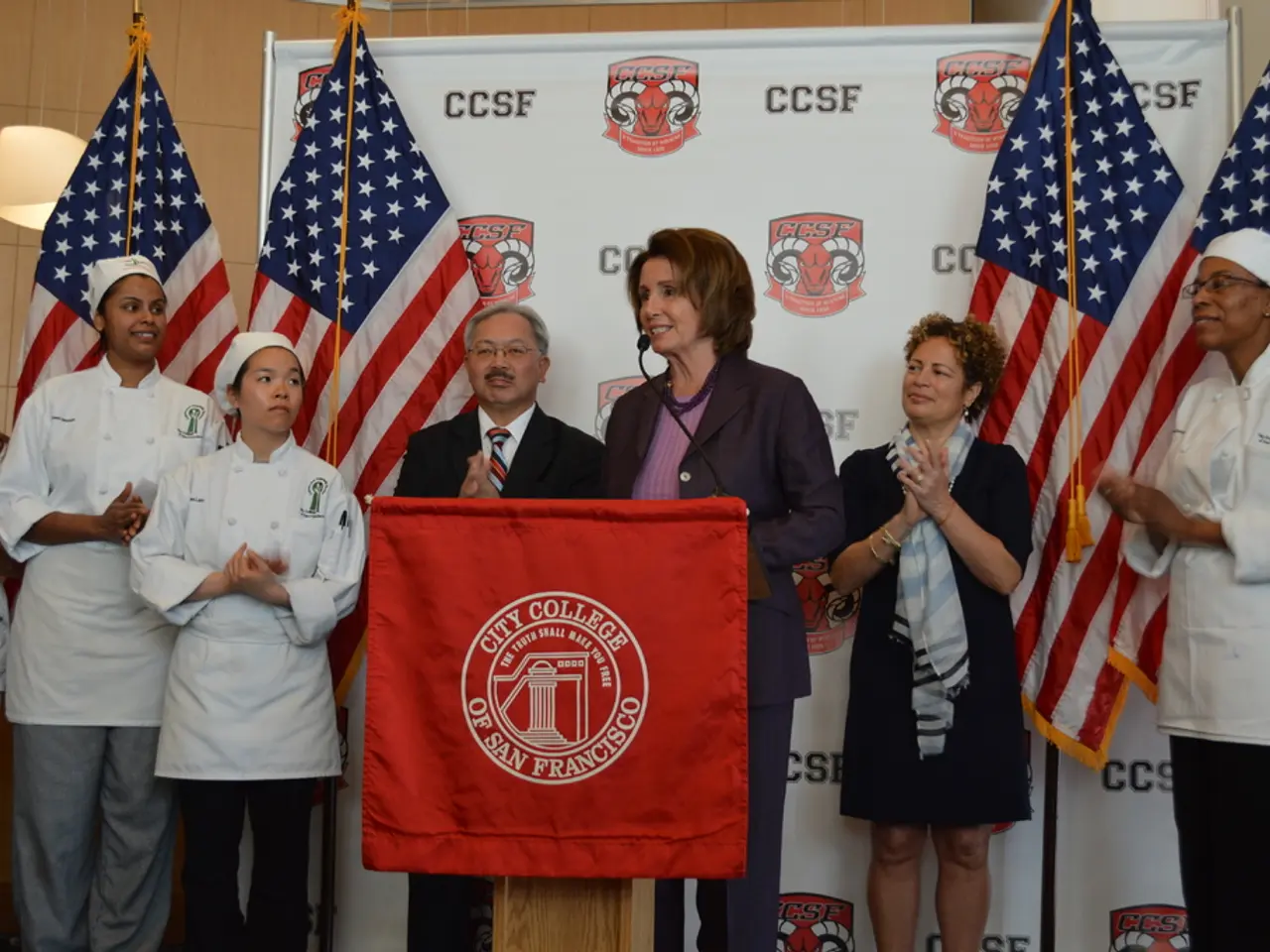SPD backs "Oberhausen Stay Social!" campaign and advocates for council discussion
In the heart of North Rhine-Westphalia, the Social Democratic Party (SPD) faction in Oberhausen's city council has taken a proactive stance, calling for an urgent debate on the preservation and expansion of social infrastructure. The debate is scheduled for the next city council meeting on December 11.
Chairwoman of the SPD City Council faction, Sonja Bongers, has led this initiative, emphasizing the necessity of the state's active involvement in this matter. The SPD faction believes that the success of such an endeavour hinges on the collaboration with the social partners.
The SPD faction's concerns are not new. For some time, they have been advocating for a fair educational landscape, calling for more support for the free carriers of open full-time education. This motion, unanimously adopted by the Oberhausen SPD at a party meeting on Monday evening in the Haus Union, underscores their commitment to this cause.
The state government, according to the SPD, has a legal obligation to ensure adequate financing for such ventures. The SPD faction promises to use every possible room for maneuver in budget negotiations to maintain the social service structure and the diverse range of carriers.
The preservation and expansion of social infrastructure is not just a matter of budgetary implications for the fiscal year 2024, but also a question of social peace in the country. This is a sentiment echoed by the Association of Free Welfare Associations, who have written an open letter to city council members, expressing concerns about cuts in the social sector and advocating for the preservation and expansion of social infrastructure in Oberhausen. The open letter has also been sent to the black-green state government in Düsseldorf.
The SPD faction has emphasized that it is no longer acceptable for the state to increasingly shift responsibility to the municipalities. They call on all democratic factions and groups in the council to join their efforts, aiming for a structural and sustainable securing of the social infrastructure in Oberhausen.
While specific details about the upcoming debate, including the role of the state government and budget implications for 2024, are yet to be disclosed, it is generally understood that such debates typically involve state government assessing funding allocations, prioritizing social infrastructure like schools, community centers, healthcare, and affordable housing. The role of the state government usually includes proposing a budget, coordinating with municipal authorities, and ensuring that investments align with social needs and economic goals.
For precise details on Oberhausen’s situation, official statements from the North Rhine-Westphalia state government or Oberhausen municipal council records would be needed, as well as local news sources focusing on social infrastructure policy and budgetary debates around 2024.
Sonja Bongers, in her role as a member of the North Rhine-Westphalia State Parliament, is at the forefront of this initiative, working tirelessly to ensure the preservation and expansion of social infrastructure in Oberhausen.
- Sonja Bongers, as a member of the North Rhine-Westphalia State Parliament, is engaging in discussions on policy-and-legislation related to social infrastructure within general-news context, particularly focusing on urban education and social service structures.
- The upcoming debate in Oberhausen's city council is expected to delve into politics surrounding social infrastructure preservation and expansion, with implications for budgetary decisions in 2024 involving the state government and municipal authorities.

